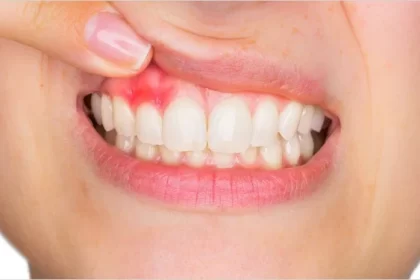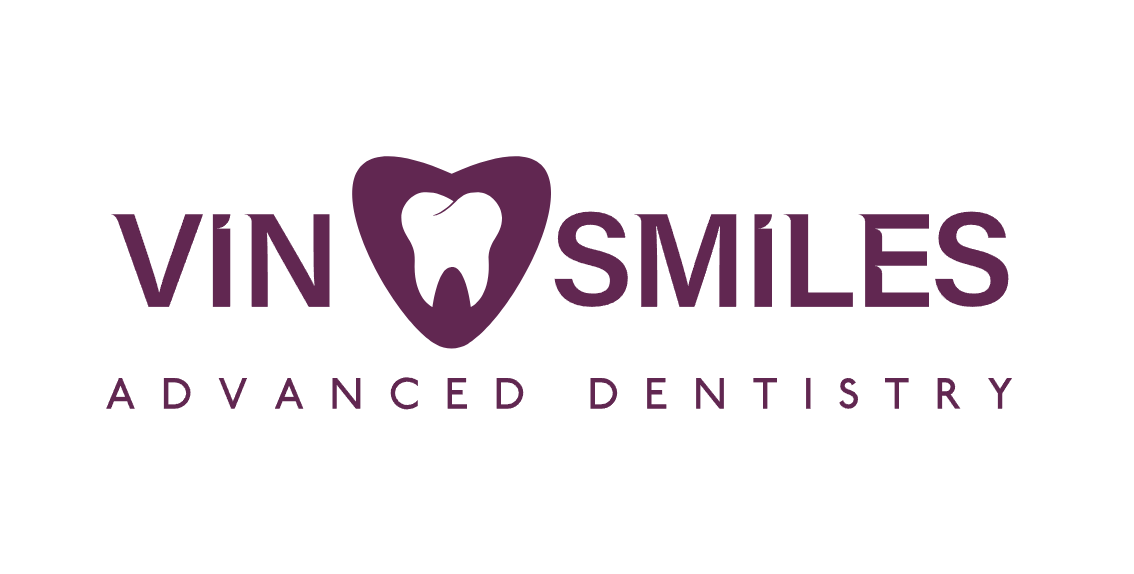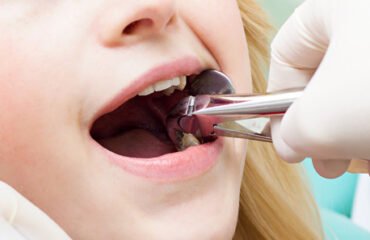 ORAL ULCERS Mouth ulcers are painful areas in the mouth and gums. They are also known as canker sores. Mouth ulcers range in size, and the exact symptoms of the mouth ulcer will depend on what type of ulcer a person has. CAUSESThe exact cause of mouth ulcers is still not known and varies from person-to-person. Still, there are some common causes and several factors that may aggravate mouth ulcers, including the following:
ORAL ULCERS Mouth ulcers are painful areas in the mouth and gums. They are also known as canker sores. Mouth ulcers range in size, and the exact symptoms of the mouth ulcer will depend on what type of ulcer a person has. CAUSESThe exact cause of mouth ulcers is still not known and varies from person-to-person. Still, there are some common causes and several factors that may aggravate mouth ulcers, including the following:- Quitting Smoking
- citrus fruits and other foods high in acidity or spice
- biting the tongue or inside of the cheek
- braces, poor-fitting dentures, and other apparatus that may rub against the mouth and gums
- a deficient filling
- stress or anxiety
- hormonal changes during pregnancy, puberty, and menopause
- medications including beta-blockers and pain killers
- genetic factors
- Mouth ulcers are often painful whereas mouth cancer is not.
- Mouth ulcers will clear up in about 2 weeks, whereas mouth cancer will not go away and will often spread.
- Mouth cancer patches may be rough, hard, and not easy to scrape off.
- Mouth cancer is often a mix of red and white areas or large white areas that appear on the tongue, the back of the mouth, the gums, or on the cheeks.
- Mouth cancer is often linked to heavy drinking or tobacco use.
- appear as extremely painful ulcers in the mouth
- recur very quickly, so infections seem continuous
- increase in size, eventually coming together to form a large, ragged ulcer
- take 10 or more days to heal
- appear anywhere in the mouth
- one or more painful sores that may appear on the cheeks, the roof of the mouth, or the tongue
- the appearance of round lesions that have red edges and are yellow, white, or gray in the middle
- the appearance of a non-painful ulcer in one or more areas of the mouth
- unusual ulcers that appear in a new spot in the mouth
- ulcers that are spreading
- ulcers lasting longer than 3 weeks.
- they are particularly painful or big
- a fever appears
- they develop after starting a new medication
- secondary bacterial infections
- talking to a doctor about changing medications that are known to cause ulcers
- avoiding foods that can either trigger or worsen symptoms
- keeping the mouth clean with daily brushing and flossing
- avoiding triggers known to cause outbreaks in the past
- Laser treatment of recurrent apthous stomatitis is an easy, fast and pain free procedure.
- Studies have shown that ulcers treated by laser therapy provide immediate pain relief and fewer recurrence in the future.
- Lower -level laser therapy is better in treating Apthous ulcer lesions in comparison to topical medications.
- Although many modalities have been employed to treat the severe discomfort of apthous ulcer, patients have yet to be provided with an immediate , effective therapeutic regimen.
- There are four types of lasers used in treating apthous ulcers: CO2, , ND:YAG , diode and GaAIAs. Although all of them have succeeded in providing immediate pain relief to patients, CO2 lasers have the unique advantage of requiring a very short exposure time ( 5-10 sec)
- Drink plenty of water.
- Practice good oral hygiene to keep your mouth as clean as possible.
- Rinse your mouth with warm saltwater a few times each day.
- Make a mixture of equal parts hydrogen peroxide and water and rinse your mouth twice a day.
- Avoid hot and spicy foods until the ulcer heals.
- While you can’t prevent mouth ulcers altogether, there are things you can do to reduce your risk:
- Brush your teeth twice daily and floss once daily for optimal oral health.
- Use a soft-bristled toothbrush to avoid tissue irritation.
- Eat a healthy diet rich in fresh fruits and vegetables.
- Visit your dentist regularly for checkups and cleanings.
- If your provider thinks you have an underlying condition that causes sores, treating your condition can reduce the risk of ulcers returning. Talk to your provider about ways to manage your health.
- Mouth sores that last for three weeks or longer.
- New sores that appear before the old ones heal.
- Mouth ulcers that affect the outer part of your lips.
- Pain that doesn’t improve with medication.
- Unusually large mouth ulcers.
- Mouth sores that are painless.
- Why do I keep getting mouth ulcers?
- Is an underlying condition causing them?
- How can I reduce my risk?
- What mouth ulcer medicine do you recommend?
- Are there any changes I should make to my diet or lifestyle?




